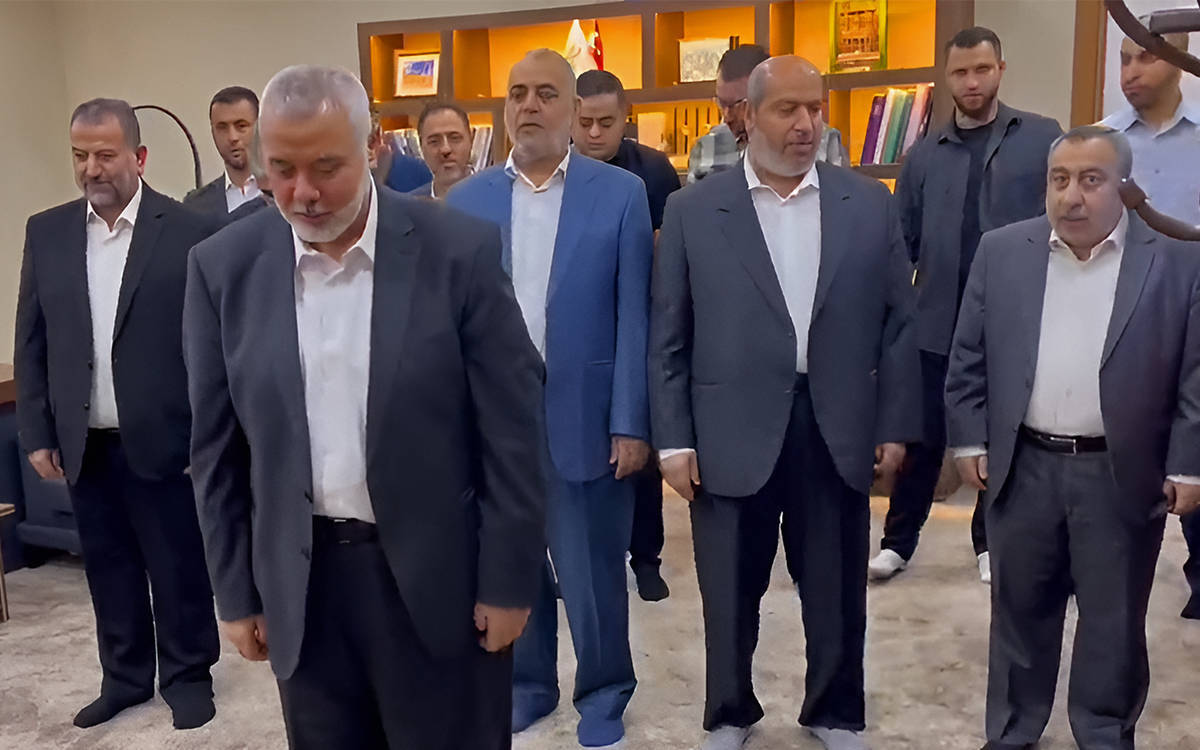Yesterday, journalist Fehim Taştekin's article on Al-Monitor shed light on Turkey's approach to Hamas leadership during Israel's 'Aksa Storm' operation, revealing that Hamas Political Bureau Chief Ismail Haniyeh was discreetly asked to leave Turkey.
The images of Haniyeh's joyful prayer and an Al-Jazeera interview with Hamas Political Bureau Deputy Chief Saleh al-Arouri, both taken in Ankara, reportedly made the Turkish government uncomfortable. Taştekin cited two different sources who mentioned that Ankara aimed to distance itself from the perception of harboring Hamas, particularly in the wake of the Israeli assault that claimed civilian lives.
اسماعيل هنية وفريقه يسجدون سجدة الشكر على ما أسماه بالنصر. pic.twitter.com/qBLiRqnogq
— أحمـد (@A_MQQ) October 7, 2023
Images from the day Haniyeh and his associates prayed in joy show flags of both Hamas and Turkey in the background, hinting at Haniyeh's presence in Turkey.
Turkey's 'inability' to protect Hamas members
Additionally, an unnamed source disclosed that on the same day, Turkey's National Intelligence Organization (MİT) had met with Hamas leaders, who decided to leave Turkey due to Turkey's inability to guarantee their security against potential Israeli threats, according to RIA Novosti.
Turkey's Presidential Communications Directorate, through its Disinformation Combat Center, swiftly responded to Fehim Taştekin's article, categorically denying any claims that President Recep Tayyip Erdoğan had issued an order for senior Hamas officials to leave Turkey. However, it's worth noting that the denial was shared only in Arabic and did not address Haniyeh's whereabouts during the 'Aksa Storm' operation.
Erdoğan's mediation efforts
This development aligns with President Erdoğan's recent call for moderation in the ongoing Israel-Palestine conflict, advocating for an immediate cessation of hostilities and negotiation to resolve the issues. Turkey has positioned itself as a mediator in ceasefire discussions and the resolution of hostage-related matters. Notably, Qatar and Egypt have played significant roles in these talks. (VC/VK)






